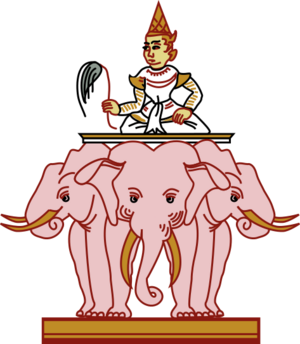Sthavarapitar: Difference between revisions
No edit summary |
No edit summary |
||
| Line 7: | Line 7: | ||
| alt = <!-- for alternate text of the title image per [[WP:ALT]] --> | | alt = <!-- for alternate text of the title image per [[WP:ALT]] --> | ||
| caption = | | caption = | ||
| other_names = | | other_names = Acalanātha (अचलनाथ, "Immovable Lord") | ||
| hiro = | | hiro = | ||
| Old_Norse = | | Old_Norse = | ||
Revision as of 22:14, 3 May 2023
| Sthavarapitar स्थावरपितृ さゔあらぴたる | |
|---|---|
| Member of Dzathe | |
 | |
| Other names | Acalanātha (अचलनाथ, "Immovable Lord") |
| Planet | Sun |
| Gender | Male |
| Region | Satria |
Sthavarapitar was the fertility, sexuality, and earth deity ancient Bhaga society. Sthavarapitar was strongly associated with mountains, which are considered his home or manifestations of his body depending on the context. He was often considered the strongest of the gods and became the patriarch of the divine family, although he was not the king of heaven. Many creatures are considered his offspring, but cheif among them are the Devya, the female gods who he created to be his concubines at various points. As a parental figure, Sthavarapitar was often sought out as a protector from enemies or intercessor with other deities. Being born near a mountain peak was considered lucky because of Sthavarpitar's protective presence.
Over time, Sthavarpitar replaced Jenyanaka as the primary figure of veneration in Satria. His relationship with the Devya also became more diverse with many of them coming into being spontaneously or less directly from his own power. Although he is generally revered, homosexuals have a special connection to the modern figure of Sthavarpitar.
History
Iconography
Worship
- lingam